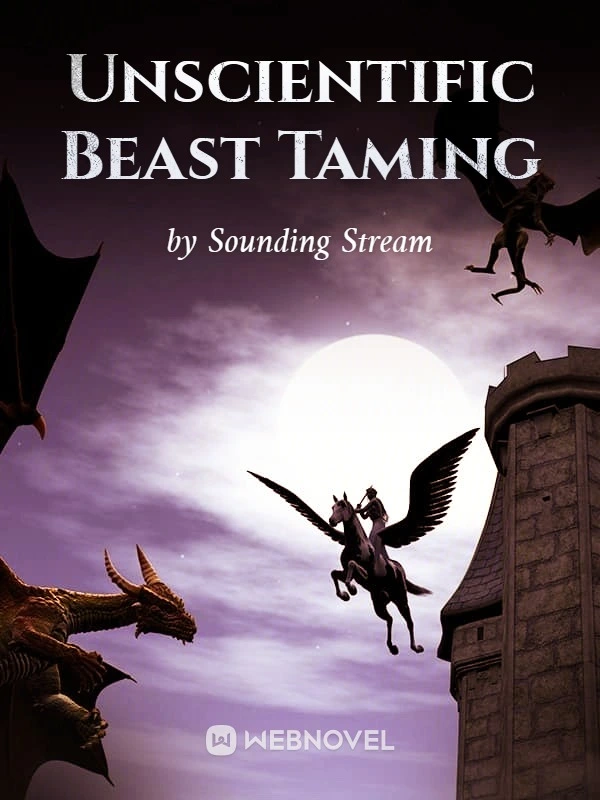Chapter 52: The Shadow of Versailles (2)
Translated by Vine | Proofread by Lust
For the latest updates, visit: ProNovels.com
Join our Discord for release updates: https://discord.gg/Eh2ayfR4FB
< German Civil War – The Shadow of Versailles (2) >
September 27, 1939
Southern Britain, London, Capital of the United Kingdom – Winston Churchill’s Residence
Winston Leonard Spencer Churchill, also known as the “British Bulldog.” Half of the embassy staff felt there was no need to meet with him.
Currently, Winston Churchill was nothing more than an ordinary member of the Conservative Party, considered a has-been politician after his disastrous failure at Gallipoli.
On the other hand, I, though only in my twenties, was the second-in-command of the German New Government, here for diplomatic negotiations. I wasn’t obligated to accept an invitation from a mere MP.
However, I decided to attend.
Half out of curiosity about such an iconic figure, and half to make an impression in case he became Prime Minister, as he did in the original timeline.
While it seemed unlikely that Chamberlain’s faction, Churchill’s rivals within the Conservative Party, would suddenly fall from grace, history was unpredictable.
For instance, I had taken precautions, such as securing the Pope’s support, anticipating Mussolini’s potential attack during the civil war. However, I hadn’t foreseen him declaring war while we were in negotiations with Britain and France.
“Welcome, State Secretary Schacht. Thank you for accepting my invitation.”
Churchill, a man built more like a mafia boss than a politician, greeted me with a cigar clenched between his teeth.
Despite being in his mid-sixties, he exuded an entirely different aura from the frail Chamberlain.
“Thank you for the invitation, MP Churchill.”
Churchill seemed pleased with my politeness. He smiled warmly, a surprising contrast to his formidable appearance, and gestured for me to take a seat.
“Please, sit down. I’ve had the kitchen staff prepare a special meal for our esteemed guest.”
“Thank you.”
British cuisine. I wasn’t expecting much. However, unlike the merely wealthy Schacht family, Churchill came from a truly established and ancient British aristocratic lineage.
Naturally, his house was staffed with servants, and the meal would be prepared by a proper chef, so it should be decent.
Churchill, having invited me for lunch, had unsurprisingly prepared whiskey and brandy.
“Would you care for a drink?”
“I’ll just enjoy the meal, thank you.”
In the original timeline, Churchill should have been the First Lord of the Admiralty by now. Chamberlain had appointed him upon the outbreak of World War II, as Churchill had predicted.
However, World War II hadn’t started yet, so Churchill hadn’t become First Lord of the Admiralty. He was just an MP.
“Oh, oh. A pity.”
Churchill muttered like an old man—well, he *was* an old man—and poured himself a drink, then began the meal.
He had invited me but remained silent, focusing on his food. I had nothing else to do, so I started eating as well—
Wait, this is good?
While the vegetables had the characteristically mushy texture of British cuisine, the accompanying grilled bacon, sausages, and baked beans with sauce were impeccable.
I hadn’t expected to have a delicious meal in England, so I continued eating with gusto. Looking up, I saw Churchill watching me while sipping his whiskey.
Damn, he startled me.
Churchill observed me quietly for a moment and then spoke.
“The food seems to your liking.”
“Yes, it’s excellent. The best I’ve had in England.”
It was so good that I wondered why British cuisine had such a bad reputation. Of course, being a wealthy aristocrat, his experience was likely different from that of the common people.
Enjoying the translation? Stay updated with the latest chapters at ProNovels.com.
“Haha, I’ll be sure to pass on your compliments to the chef.”
Churchill replied, putting down his glass and taking a long drag of his cigar. He wasn’t giving me much to work with.
Finally, I broke the silence.
“May I ask why you requested this meeting, MP?”
Churchill took another puff of his cigar and smiled faintly.
“And why did *you* accept the invitation, State Secretary?”
I was taken aback by his question. Had he really expected me, a high-ranking member of the New Government, to accept an invitation from a mere MP?
Perhaps, as a skilled politician, he had simply been testing the waters.
The mere fact that I had accepted his invitation could be useful to him.
“You were one of the first to recognize the danger Hitler posed.”
His famous quote about the Munich Agreement was well-known: “Britain and France had to choose between war and dishonor. They chose dishonor. They will have war.”
At the time, the British political establishment had fiercely criticized Churchill, but now, with Hitler having broken the Munich Agreement and his war plans against Poland exposed, Churchill had been proven right.
However, due to my intervention and the resulting civil war in Germany, Churchill wasn’t receiving the recognition he deserved in the original timeline.
“As a member of the New Government, which rose up against Hitler’s threat and madness from within Germany, I believe it is natural for me to be interested in you, MP.”
Personally, I wasn’t fond of him as a staunch imperialist, carrying the memories of Korea’s suffering under Japanese colonial rule.
However, it was unsettling to see a man who would have been a hero in the original timeline facing a different fate due to my intervention.
Mocking Churchill’s foolish military blunders in World War II from the comfortable distance of the 21st century was very different from experiencing his presence firsthand in this era.
Could I have, without the knowledge of the future, called for resistance against Nazi Germany, which had swept across Europe and cornered the entire British army at Dunkirk, as he had?
Churchill stared at me intently, put down his cigar, took another sip of whiskey, and finally spoke.
“I was quite impressed by your propaganda campaign, State Secretary.”
Now that he mentioned it, while overshadowed by Goebbels, Churchill was also a renowned orator, inspiring the British people to resist with his powerful speeches.
“Your methods of captivating the public were similar to the Nazis’, yet different.”
So that was how people of this era perceived it. Perhaps some of the methods I employed were similar to those of the Nazis.
“Is that so?”
Churchill puffed on his cigar and continued.
“I was concerned that another dictator might emerge from the crisis in Germany.”
“As I stated in the conference, the current wartime cabinet is merely a transitional government, MP. Our goal is democracy.”
He smiled faintly at my words.
“Hitler also came to power promising peace, not war. I believe in what I see, not in what I hear.”
“Then, what is your assessment of our New Government, MP?”
Churchill took another leisurely sip of whiskey and finally answered.
“Seeing you reminds me of my younger days.”
Instead of directly addressing my question about the New Government, he gave a different answer. Winston Churchill had been First Lord of the Admiralty during World War I, in his thirties.
I, like him, made active use of propaganda to influence public opinion. For Winston Churchill, of all people, to see his younger self in me, a young man in a high position…
It felt bittersweet. A man who would be considered one of Britain’s greatest Prime Ministers in the original timeline was now a retired old man reminiscing about his youth.
“Is that so? Then, since I accepted your invitation and satisfied your curiosity, raising your profile in British politics in the process, can I consider this a favor to you?”
“Hahahaha!”
Winston Churchill burst into laughter, wiping tears from his eyes, and then asked.
“And what reward do you seek?”
“I’m not that much of a scoundrel. This would benefit you as well, MP.”
I hadn’t planned this initially, but Winston Churchill, the symbol of anti-Nazi sentiment in Britain, was perfect for a specific role.
–
September 28, 1939
Southern Britain, London, Capital of the United Kingdom – Cordula Schacht’s Residence
“Welcome, Dietrich. It’s been a long time.”
“It has, sister.”
My sister, Cordula, eight years my senior, accepted my polite greeting and then looked at me with a complicated expression.
“When I heard you were the spokesperson, and then the State Secretary of the German New Government, I thought the world was coming to an end. But I suppose even a wastrel like you can grow up.”
“Haha…”
Dietrich Schacht had indeed been quite the delinquent. Being the youngest son in a wealthy family had made him complacent.
My sister had married and moved to England before Dietrich Schacht had volunteered for the Condor Legion and gone to Spain, so she still remembered me as the good-for-nothing Dietrich Schacht.
“A gift for you.”
I presented her with a bottle of Eiswein from Moselland, a specialty wine from western Germany made from frozen grapes, that I had brought from Germany.
“My goodness, you really have changed. Well, thank you.”
I was grateful to that Dietrich fellow for remembering that my sister loved alcohol, especially wine. It was one of the few things I could be thankful for since taking over his body.
My sister, who had been cold and distant after receiving my sudden request to meet our godfather after years of no contact, warmed up considerably after receiving the gift.
“Your godfather is already here. Come this way.”
“Thank you, sister.”
Following my sister’s lead, I was greeted by a gentleman in his late sixties, with a distinguished white beard and a bowler hat.
“Oh, Dietrich. It’s been a long time. How is your father?”
Montagu Norman, Governor of the Bank of England. He was a close friend of my father and my nephew’s godfather. I vaguely remembered meeting him when I was a child.
“It’s good to see you again. My father is doing well. He’s quite busy at the moment.”
He was still a workaholic who wouldn’t shed a tear even if pricked with a needle.
I hugged him briefly, and he smiled warmly, as befitting an elderly gentleman.
“Haha, that’s good to hear. I was very sorry to hear about his dismissal as Finance Minister, but now he’s the Chancellor of the New Government…”
Norman smiled faintly, looked at me for a moment, then erased his friendly expression and asked a question.
“So, should I be greeting you as the son of a friend, or as the State Secretary of the New Government?”
“As the latter, Governor of the Bank of England.”
Norman smiled faintly at my words, sat down, and changed his tone.
“Now then, State Secretary, let’s hear if this old man’s time has been well spent.”
“Yes, Governor. As you may have guessed, the German New Government hopes for Britain to formally recognize Emperor Wilhelm III’s ascension and withdraw its ultimatum. And we would like you and the members of the Anglo-German Fellowship to exert your influence on Parliament to achieve this.”
While Montagu Norman didn’t have the same cold and austere demeanor as my father, Hjalmar Schacht, he was a prominent figure in the British financial world and a member of the Bank for International Settlements (BIS), a major player in international finance.
I couldn’t help but feel a little nervous.
“Hmm, I suspected as much. However, as you know, this meeting was orchestrated by France. Britain doesn’t harbor any ill will towards the German New Government, so wouldn’t it be better to silence France?”
“Of course, persuading France would be the most direct solution. However, given the New Government’s current circumstances, that is nearly impossible.”
Ultimately, France wanted to demonstrate its dominance over Germany in these negotiations. It was ironic that they were acting tough against a weakened New Government in the midst of a civil war, after having been led around by Hitler.
Compromise, other than complete surrender, was impossible with an opponent who was still clinging to the glory days of the Treaty of Versailles, when they could cripple the German economy with the Ruhr occupation, without any consideration for Germany’s position.
“Hmm, however, France has been Britain’s ally since the Great War. While I have a personal relationship with the Chancellor of the New Government, as a patriot and a businessman, I cannot blindly support Germany without any benefit.”
Despite his words, British public opinion towards Germany had been relatively favorable until Hitler broke the Munich Agreement.
Montagu Norman, in particular, had been friendly towards Germany, playing a key role in the aftermath of the Treaty of Versailles, pressuring France to end the Ruhr occupation.
He had even facilitated the transfer of gold from the Czechoslovak National Bank to the German Reichsbank after Hitler annexed Czechoslovakia. His current stance was likely just a formality.
“Of course. I didn’t come empty-handed. Would you take a look?”
If I could present him with a mutually beneficial proposition, I believed I could sway him and Britain.
Montagu Norman took the documents I offered, glanced through them, and chuckled.
“My, my. Quite a lot.”
We had prepared a portion of the documents detailing the corruption perpetrated by the Nazis and German businesses under the Nazi regime.
This information had been compiled by the Abwehr at my request since before the Munich Agreement.
I had originally intended to use it for propaganda if we failed to secure evidence of the atrocities committed at Buchenwald concentration camp during the coup, but it was now serving a different purpose.
Nazi Germany’s defeat by the Soviet Union wasn’t solely due to the difference in their overall strength and American support; the rampant corruption and inefficiency within the Nazi administration had also played a significant role.
Furthermore, the Nazis had their hands in every business imaginable, and German companies, eager to curry favor with them, had engaged in all sorts of illegal activities.
While this wasn’t a problem when the Nazis controlled the law, things would change once the New Government won the civil war.
We planned to completely seize the assets of companies that had been deeply involved with the Nazis or were run by Nazi officials.
This was partly to recoup some of the losses from the MEFO bills, but we also had no intention of letting those who had actively collaborated with the Nazis, even resorting to illegal means, go unpunished.
“As you can see, a major corporate reshuffle across various sectors is planned after the civil war. However, we cannot nationalize all companies, so some will be sold off.”
“Oh?”
While nationalizing companies could be beneficial to the state, it was generally limited to key industries like military manufacturing and public utilities.
Nationalizing other companies would simply be a drain on administrative resources, and distributing them to domestic companies wouldn’t be feasible, as they had a limited capacity to absorb them.
“We intend to revitalize Anglo-German economic cooperation, which has been neglected due to Hitler, and as a starting point, we are willing to sell some of the reorganized companies at reasonable prices. If we are pursuing liberal democracy, shouldn’t economic exchange reflect that as well?”
“That’s a tempting offer.”
This was not only beneficial to British businesses, but it would also bring British capital into Germany.
This proposal was inspired by the observation that the long-lasting peace enjoyed by 21st-century developed nations was partly due to their economic interdependence.
When a government considered waging war against a country where its businesses had invested, those businesses would be the most ardent and influential voices against it.
“Of course, to enjoy these benefits offered by the New Government, the German Civil War must end as quickly and smoothly as possible.”
If the civil war dragged on and intensified, destroying everything and leaving nothing for Britain, it would all be for naught.
Norman smiled broadly.
“I see your intentions clearly, but it’s too sweet a bait to refuse.”
“Isn’t it natural to be drawn to mutually beneficial endeavors rather than detrimental ones?”
While France was obligated to intervene if Germany invaded Czechoslovakia during the Munich Agreement, Britain wasn’t.
As a result, France, which had been at Britain’s mercy, had secured a guarantee from Britain during the Munich Agreement, making Britain also obligated to intervene.
This was a natural move for France, which would be directly attacked by Germany otherwise, but it was an unwelcome one for Britain, which wanted to avoid war.
Even in the current situation with the Emperor’s ascension, France was the one in urgent need, yet Britain had been dragged into it as if it were a shared interest.
Britain and France weren’t bound by centuries of alliance. They were closer to historical rivals.
Britain’s alliance with France since World War I was solely due to the existence of a powerful common enemy: Germany.
“Haha, well said. Hjalmar must be proud.”
“Thank you.”
We shook hands with smiles.
If an ally, once close, became a burdensome nuisance and shared interests faded, there was no reason not to switch sides for a sweeter deal.
France, driven by desperation and shortsightedness, would pay dearly for its actions.
< German Civil War – The Shadow of Versailles (2) > End
ⓒ Carcassonne
For the latest updates, visit ProNovels.com. Join our Discord for release updates: https://discord.gg/Eh2ayfR4FB.




















